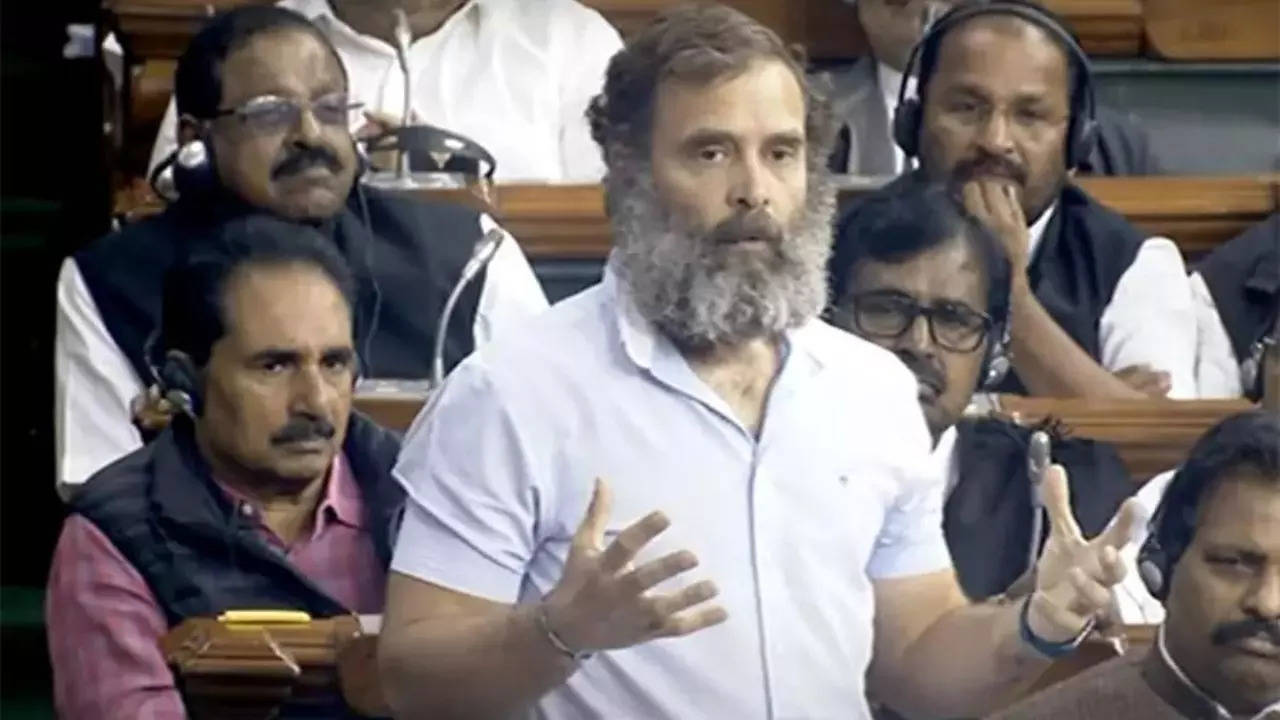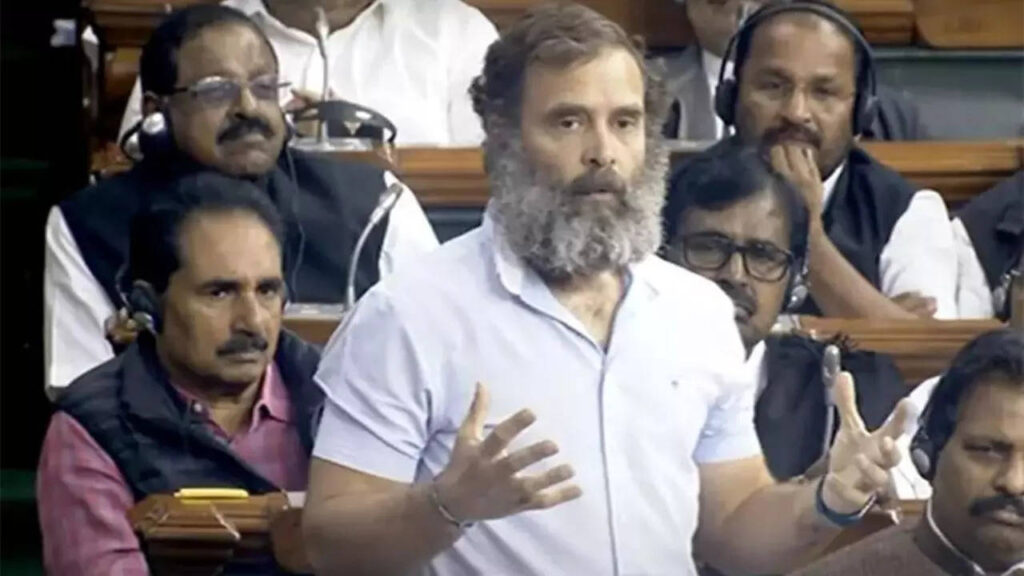

By K Raveendran
By suggesting that the alleged Hindenburg offensive against the Adani group is an attack against India, the ruling party is, though inadvertently, acknowledging the sway the group has on the Modi government. This assertion not only underscores the influence wielded by Adani but also serves to validate Rahul Gandhi’s persistent criticism that the Modi administration prioritizes the interests of corporate giants like Adani and Ambani over the welfare of ordinary Indians.
The BJP has sought to downplay the report’s implications by framing the allegations as politically motivated. This narrative is consistent with the party’s general approach of dismissing critical reports and accusations as attempts to undermine the government’s legitimacy. By suggesting that the timing and content of the report are designed to coincide with electoral or political opportunities for opposition parties, the BJP seeks to deflect scrutiny and maintain its political momentum. It has even overlooked the risk of its defence of the group and linking of the group’s interests with its own as an acknowledgment of the Modi government going out of its way to shield Adani companies.
BJP leader Ravi Shankar Prasad in his typical arrogant style has tried to discredit the Hindenburg report by asserting that the organisation’s main investor is George Soros, the Hungarian-American businessman, investor, and philanthropist who is known to be a critic of prime minister Modi. BJP has been accusing Rahul Gandhi of doubtful liaison with Soros, whose betting against British pound in the 90s broke the currency’s back. Prasad criticized the report’s findings against the Adani group and the SEBI chief as an attempt to destabilise India by manipulating the stock market.
Congress is demanding a joint parliamentary committee probe into the charges levied by Hindenburg Research against SEBI chief Madhabi Puri Buch and her immediate resignation. The party has escalated its response to the controversy by planning a nationwide agitation demanding the sacking of Madhabi Puri Buch. This move is seen as a strategic attempt to galvanize public sentiment and apply pressure on the Modi government. The agitation aims to highlight what Congress perceives as a broader issue of regulatory capture and government complicity in protecting corporate interests.
The skirmish over SEBI’s leadership and its failings is emblematic of the suspicious relationship between the Modi government and corporate entities like Adani. Rahul Gandhi has long argued that the Modi government is too cozy with corporate power, to the detriment of the average Indian. According to him, the government’s policies and priorities are skewed to benefit a select few at the top, rather than addressing the needs and aspirations of the broader populace. His oft-repeated charge observation that one percent of Indians handle 40 percent of the country’s wealth has almost become a cliché of his public meetings.
The Hindenburg Research report, which first brought the Adani group under intense scrutiny, has reignited discussions about corporate governance and regulatory oversight in India. Hindenburg has challenged SEBI chief Madhabi Puri Buch to disclose her investment details both within India and abroad. The challenge underscores the broader concerns about transparency and the potential conflicts of interest within India’s regulatory institutions. The report implicitly questions the integrity of SEBI’s role in overseeing the Adani group’s financial practices. This scrutiny is crucial in a landscape where the line between corporate interests and governmental influence often blurs, raising concerns about the efficacy and impartiality of regulatory bodies.
As far as the BJP is concerned, the findings in the latest Hindenburg report feels like hitting below the belt as it validates Rahul Gandhi’s critique of the Modi government. That perhaps explains the desperation in the BJP camp over the implications of the allegations levelled by the US short seller. he findings For Rahul Gandhi, the Adani controversy has been a recurring theme in his critique of the Modi government and the systematic alignment of government policies with the interests of a handful of business magnates, to the neglect of broader societal needs.
The political ramifications of this situation are profound. On one hand, the ruling party’s defence of Adani and dismissal of opposition calls for a probe serve to reinforce their commitment to supporting corporate allies. On the other hand, this stance also risks further alienating ordinary voters who may feel that their concerns are being sidelined in favour of corporate interests. The debate around SEBI’s leadership and the broader issue of corporate influence thus becomes a microcosm of a larger political narrative about governance, fairness, and representation. With an adverse electoral outcome in the Lok Sabha elections, this is a serious cause of concern for the ruling party.
As the situation evolves, the spotlight on SEBI chief Madhabi Puri Buch and the Adani group will likely remain intense. The challenge issued by the Hindenburg report for greater transparency may well shape the next phase of this debate. The response from Buch, the ruling party, and the opposition will be crucial in determining the direction of this controversy and its implications for Indian politics and governance.(IPA Service)




